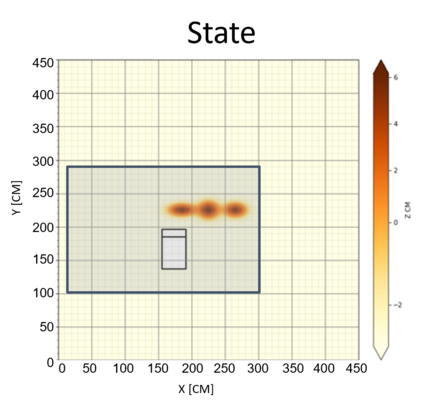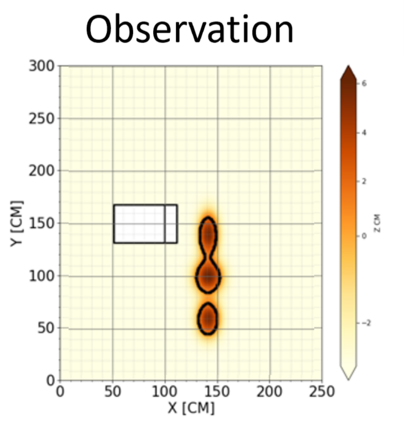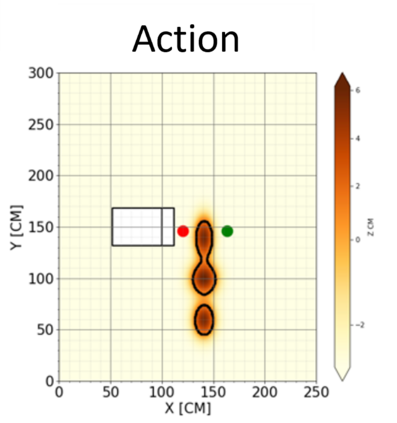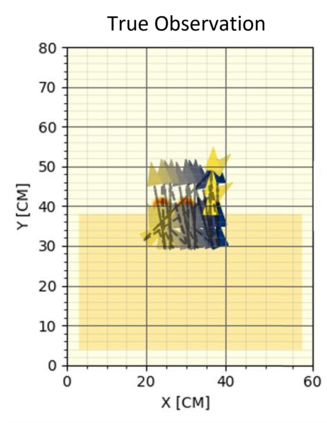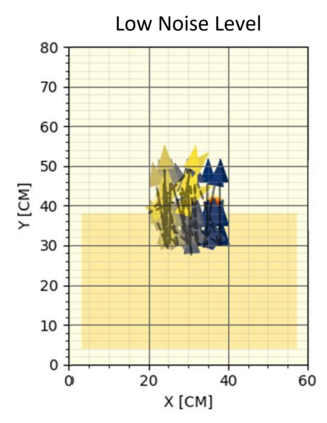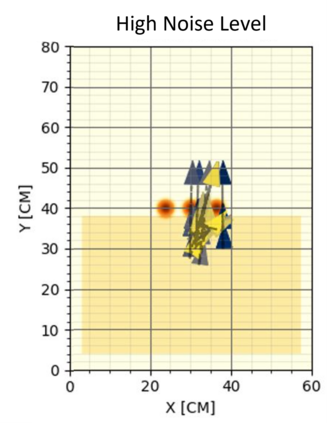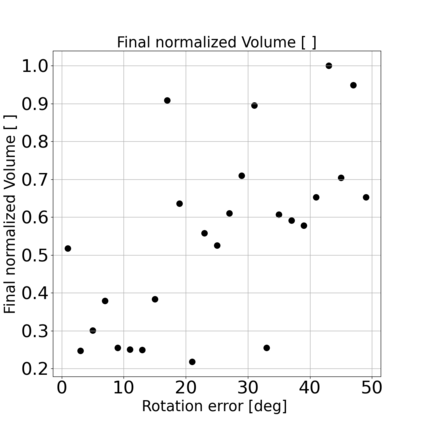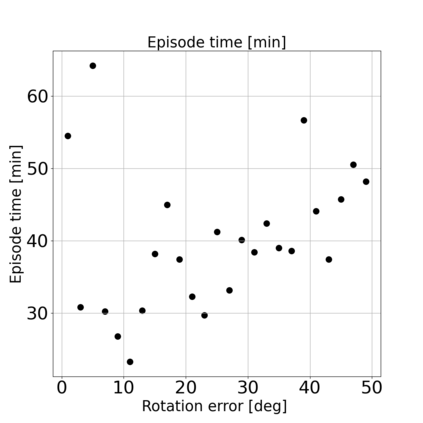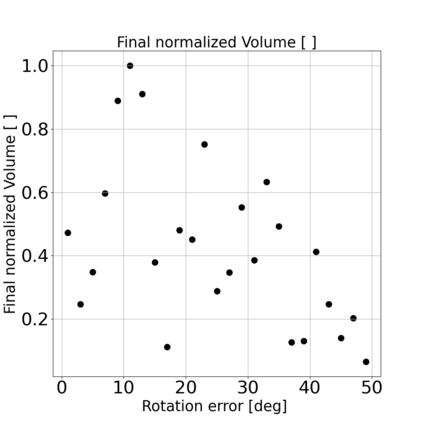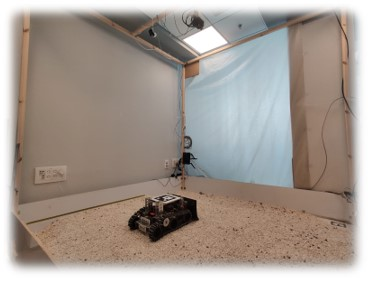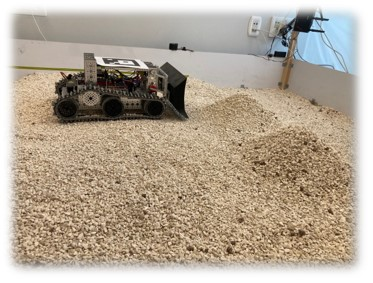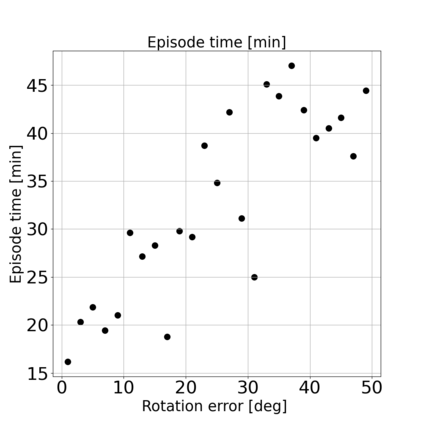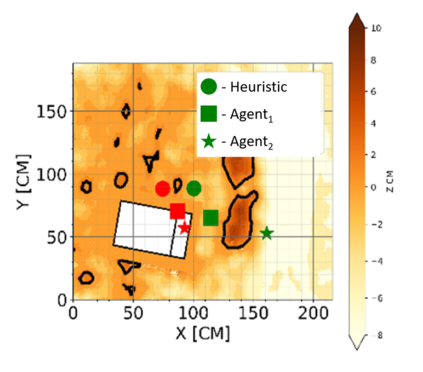Surface grading, the process of leveling an uneven area containing pre-dumped sand piles, is an important task in the construction site pipeline. This labour-intensive process is often carried out by a dozer, a key machinery tool at any construction site. Current attempts to automate surface grading assume perfect localization. However, in real-world scenarios, this assumption fails, as agents are presented with imperfect perception, which leads to degraded performance. In this work, we address the problem of autonomous grading under uncertainties. First, we implement a simulation and a scaled real-world prototype environment to enable rapid policy exploration and evaluation in this setting. Second, we formalize the problem as a partially observable markov decision process and train an agent capable of handling such uncertainties. We show, through rigorous experiments, that an agent trained under perfect localization will suffer degraded performance when presented with localization uncertainties. However, an agent trained using our method will develop a more robust policy for addressing such errors and, consequently, exhibit a better grading performance.
翻译:平整一个含有预先倾覆的沙堆的不均匀地区的表面定级过程,是建筑工地管道中的一项重要任务。这一劳动密集型过程通常由杜泽进行,这是任何建筑工地的一个关键机械工具。目前试图使表面定级自动化的尝试假定了完全的本地化。然而,在现实世界中,这一假设失败,因为代理物被呈现出不完善的观念,导致性能退化。在这项工作中,我们在不确定因素下处理自主定级的问题。首先,我们实施模拟和规模扩大的现实世界原型环境,以便能够在这种环境下迅速进行政策探索和评价。第二,我们将问题正式确定为部分可观测的标记决定过程,并培训一个能够处理这种不确定因素的代理物。我们通过严格的实验表明,在完全本地化情况下受训的代理物在出现本地化不确定因素时,将出现退化的性能。然而,使用我们的方法培训的代理物将制定更强有力的政策,处理这种错误,从而显示更好的分级表现。


